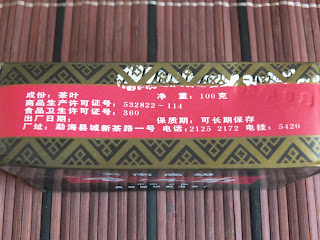I recently purchased a set of Korean Celadon teacups online. The seller indicated that this 5 teacups were made by Kim Jonmoku Tongoku. I have no idea about this maker and I would need my Korean readers to give me more input on the maker as well as on Korean celadon. I had noticed that there are many Koreans that enjoy drinking Chinese tea and many of these drinkers do take very nice pictures of their tea and tea ware and posted online especially on Instagram. Do check them out.
I found these teacups fascinating as the looked like they were made from jade when held against the light. The signature 'cracked' glazed lines seen on the cups gave the impression that these cups were delicately made.
I am very fascinated with teacups. I felt that Chinese tea does taste different with different teacups. Lin purion teacups were unique that they held heat very well (the cup stays hot for a long time) and the tea tasted very pronounced in taste and aroma. This Korean celadon teacup gave very good results. I gave one of these cups to a collector in Guangzhou and he felt that the tea was 'hua' (smooth) compared to his regular cups. Even a good lady friend that is an expert on coffee, told me that coffee tasted better using older Chinese porcelain cups.
Are we mad thinking that teacups would make a difference in the tea? Yes, yes yes .













